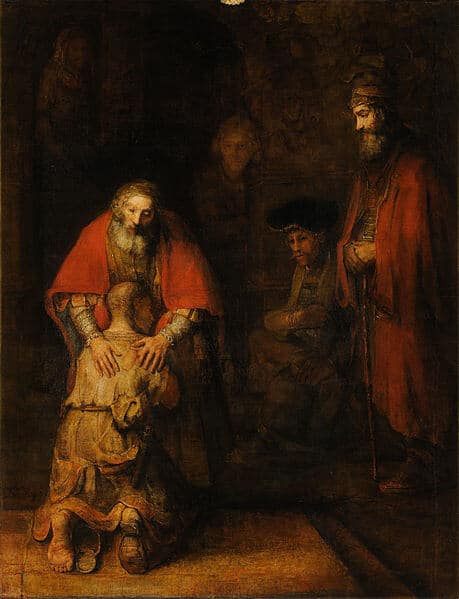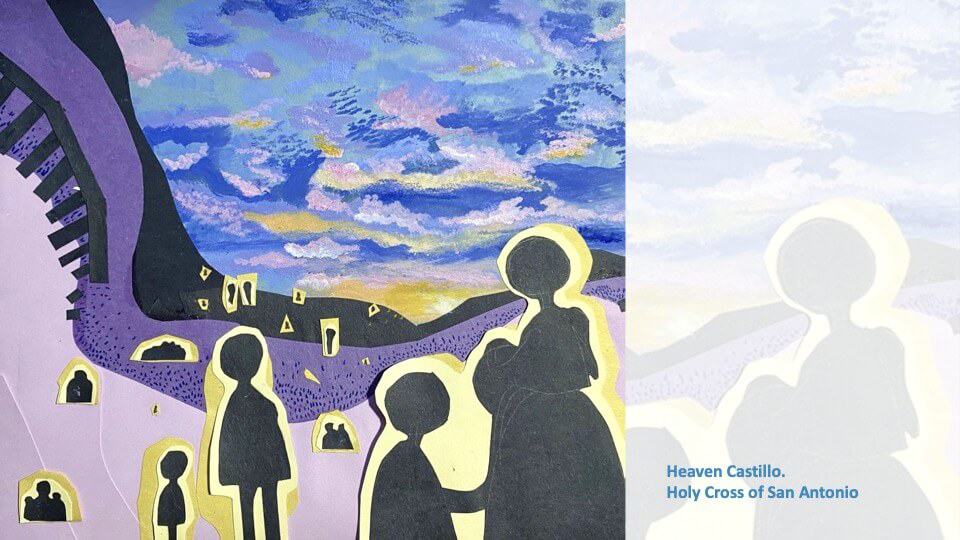Psalm 34│2 Corinthians 5:17-21 │ Luke 15:1-3
But now we must celebrate and rejoice.
Often times we hear today’s gospel referred to as the story of the Prodigal Son. But really, the story is about the loving father, how the father is a personification of God, and the kind of love God has for us. The story is sometimes interpreted so that the sons represent Gentile (lost) and Jewish (favored) identities. In this, the Gentiles have lost their way and lived generally wanton lives of decadence, whereas Jews have followed the wishes of God. But in the end, both sons, Gentiles and Jews, receive the same reward.
The story is particularly meaningful to many who have lived lives of regret or shame, only to feel the loving embrace of God, a community of hope, a family, or even church upon turning away from their wayward lifestyle.
Redemption and forgiveness are powerful themes, and they are articulated in today’s gospel in a particularly dramatic way. Luke is a master storyteller; these characters are stock. We probably know people like the sons, and the father. Would WE react like the father? We have many opportunities to express mercy and kindness, and share reconciliation with others. When we do, we are acting in a way that God would act. As we learn in today’s gospel, mercy is a fundamental expression of God and God’s character. Mercy is not merely for God alone; mercy is worthy of emulation.
Gospel
In our gospel, Jesus gives us a parable illustrating the abundant mercy of God. The father in the parable respects his sons’ freedom. He gives him the inheritance he requests and lets him go. But he never stops watching for this son to return home. And when he does catch sight of his wayward son, the father does not wait for the son to complete his journey or to speak the words of contrition he had so carefully practiced. It’s as if Jesus wants to tell us that we need only turn toward God for our merciful father to run out to meet us and usher us home.
Fourth Sunday of Lent, March 31, 2019
Responsorial Psalm
We might imagine Psalm 34 as the song of one who has been redeemed and saved. In fact, it could be the psalm of the prodigal returned to dignity and joy as a child of God. Our God wants nothing more than to find the lost and to save the sinner. This is a difficult teaching to accept for those of us who identify more with the older brother in the parable in today’s gospel. The truth is, each and every one of us is in need of repentance
Second Reading
The words of Paul in his second letter to the Corinthians are a perfect partner to today’s gospel. St. Paul says, “be reconciled to God.” Not only are we called to personal reconciliation but also to become messengers of this reconciliation to the entire world. God waits and watches for each one of us, and also for the world as a whole—to realize who we truly are: beloved daughters and sons of God.
Questions to Ponder
- Where do you feel shame and guilt in your life? How might you give that over to God?
- Which figures in the parable of the Prodigal Son do you identify with the most, at this point in your life?
- We’re at the halfway point in our Lenten journey; how have you been living the spiritual practices of prayer, fasting, and almsgiving? Is there anything you’d like to do differently for the second half of Lent?
Source: Living Liturgy (Liturgical Press, Year C 2019).
Photograph: Rembrandt [Dominio público]









0 Comments